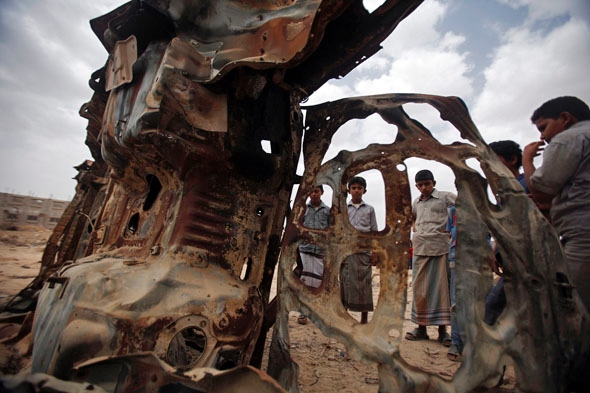
Tik Root | Slate and Roads & Kingdoms | Khaled Abdullah Ali Al Mahdi/Reuters
SANA’A, Yemen—On the morning of Aug. 30, 2013, in the Yemeni capital of Sana’a, Khaled al-Dhahab’s phone rang. The villager on the other end relayed the news Khaled had long dreaded: His brother, Qaid, was dead.
Hours earlier, Qaid al-Dhahab had been returning from a wedding celebration to his home near the rural city of Rada’a, roughly 160 miles southeast of Sana’a, when a torrent of missiles flew from the sky, turning the car in which he rode into a smoldering heap. Qaid, who by most accounts was a rising leader in al-Qaida in the Arabian Peninsula (AQAP)—considered the most active and dangerous branch of the global terrorist network—had been a target in a suspected U.S. drone strike.
Khaled was not vengeful—he said Qaid had “chosen his path.” He was, however, upset—distressed that his once-proud family keeps finding itself mixed up in al-Qaida and the West’s so-called war on terror.
CONTINUE READING AT ROADS & KINGDOMS OR SLATE